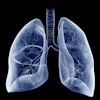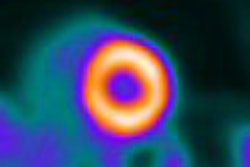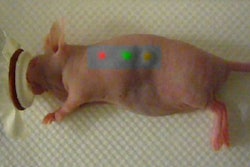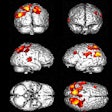Representatives from the National Oncologic PET Registry (NOPR) have formally asked the U.S. Centers for Medicare and Medicaid Services (CMS) to expand federal reimbursement for the use of FDG-PET in oncology applications.
The request asks CMS to expand FDG-PET coverage for the diagnosis, staging, and restaging of all oncology applications not currently covered by Medicare and Medicaid. The petition starts a 30-day comment period that began April 10, during which PET advocates may make their case for expanded federal reimbursement.
The petition is the next step in a regulatory process established in May 2006, when the NOPR was set up to collect data on PET's clinical value as means of helping CMS determine whether to expand Medicare and Medicaid coverage. The registry is sponsored by the Academy of Molecular Imaging of Los Angeles and is managed by the American College of Radiology (ACR) of Reston, VA, and the ACR Imaging Network (ACRIN).
For 18 months, the NOPR has collected data from more than 1,200 PET facilities across the U.S. to see how FDG-PET scans influence cancer treatment plans. The research was published online on March 24 in the Journal of Clinical Oncology, and the NOPR forwarded its letter to CMS on March 25.
"In order for us to ask CMS formally to use registry data to evaluate its coverage policy, we needed to have that data in the public domain," said Dr. Barry A. Siegel, co-chair of the NOPR Working Group and chief of the division of nuclear medicine at the Mallinckrodt Institute of Radiology in St. Louis. "The publication of that information in a peer-reviewed journal was the first step in the process."
NOPR results
In its analysis of 22,975 patients, the study found that FDG-PET prompted changes in the management in 36.5% of the cases. Within that 36.5%, FDG-PET results prompted a change from nontreatment to a treatment plan 28% of the time, while 8% of cases changed from treatment to nontreatment decisions.
While the research results have some limitations, Siegel said their strength is in the large numbers of subjects and participating sites, and the fact that the results represent how PET performs in daily clinical practice. Additionally, referring physicians should have no motive in submitting their information to the NOPR other than to detail how FDG-PET scans changed -- or did not change -- a patient's cancer treatment plan.
"Depending on how you analyze the data, that can be nearly 40% of the time or only 20% of the time, if you exclude some management changes from the analysis," he said. "Any way you cut it, (FDG-PET) seems to have an important effect."
The NOPR's request for additional cancer coverage does not include treatment monitoring at this time. The data "is still maturing," Siegel said. The NOPR is preparing a manuscript for publication on its treatment-monitoring results. In addition, the NOPR is analyzing its findings on a cancer-by-cancer basis, and plans to publish those results as well.
Consistent findings
Siegel said he is "hopeful" that CMS will agree with the NOPR's request to expand coverage as a generally applicable tool for cancer imaging. The clinical studies that helped support the expansion of Medicare PET coverage to its current list of indications demonstrated findings similar to NOPR's research, he noted.
"Almost without fail, those studies have shown that a change in management occurs between 25% and 40% of the time, and that change in management is a clinically important one," Siegel said. "Our numbers are essentially the same as other studies done under somewhat more controlled conditions in single institutions with the ability to get patient follow-up and confirm what actually happened."
CMS began accepting public comments on the proposal in a 30-day comment period scheduled to run through May 10. The agency has proposed making its final decision on or about October 10.
"We are hoping many people will comment and provide CMS with useful perspectives on whether PET helps or does not help with patient management in these currently noncovered cancers," Siegel said. "From my perspective, the bright light at the end of the tunnel certainly would be broad coverage for diagnosis, staging, and restaging for all cancers, and, potentially, treatment monitoring added to that."
By Wayne Forrest
AuntMinnie.com staff writer
April 11, 2008
Related Reading
NOPR study: PET influences cancer care, March 25, 2008
NOPR releases preliminary results of PET treatment strategies, January 11, 2008
PET changes oncology management, study shows, July 19, 2007
NOPR opens, with modifications, May 9, 2006
ACR and ACRIN to launch PET registry in May, April 27, 2006
Copyright © 2008 AuntMinnie.com




















